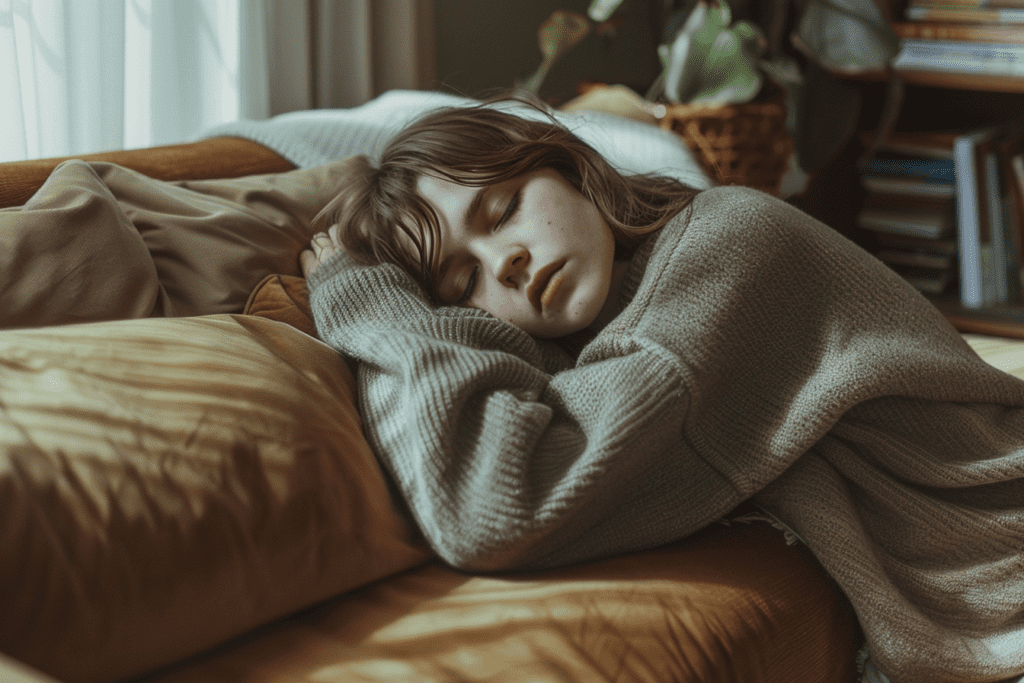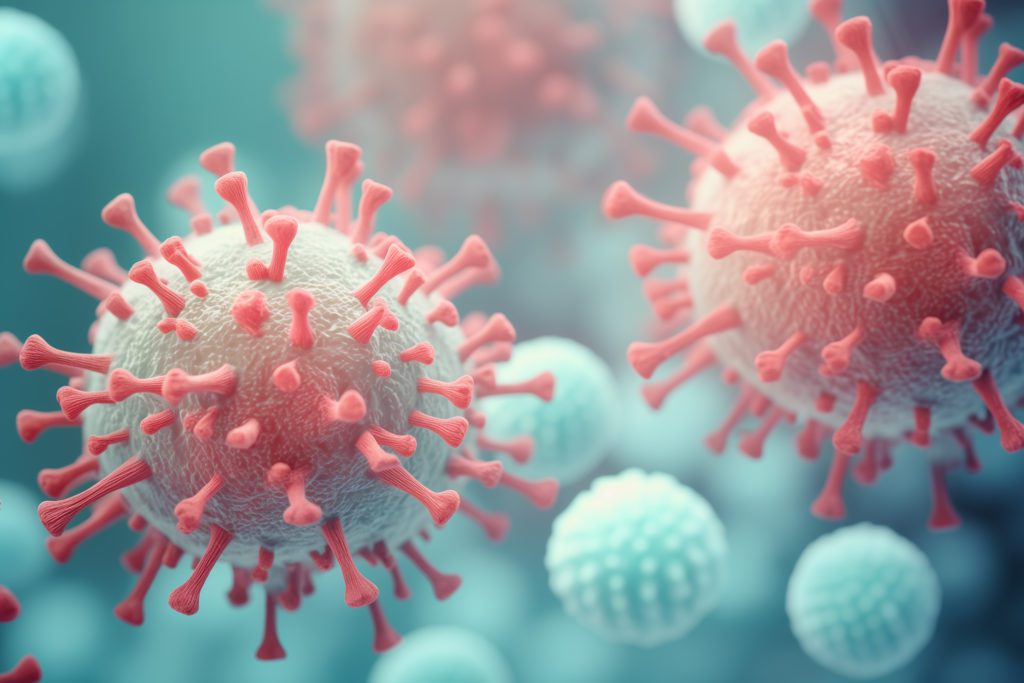
Sleep and Cognitive Performance
Given our increasingly busy lives, many people now consider sleep a luxury or an afterthought.

However, adequate rest is as essential to a person's physical and mental well-being as food and water. Without it, almost every system in the body suffers, including the brain, heart, metabolism, and immune functions.
Sleep is a complex process, but researchers are beginning to understand how it works and its importance. For instance, there is growing evidence of a connection between sleep and cognitive performance. It is also relatively common knowledge that sleep deprivation can cause many dangerous side effects on the brain.
In this article, we'll take a closer look at the relationship between sleep and cognitive performance, including what happens to our brains during sleep and the consequences of not getting enough.
What happens to our brains during sleep?
Nearly every part of the body undergoes significant changes during sleep. Additionally, many biological processes happen exclusively during sleep, including:
• Allowing the brain to store and process new information
• Maintaining critical body functions
• Repairing muscle tissue
• Restoring energy
• Ridding the brain of toxic waste
• Repairing body cells
• Releasing essential hormones and proteins
Each of these processes is critical to a person's overall health; without them, the body can not function correctly.
The brain is an organ that relies heavily on sleep. Research suggests that sleep promotes memory function in the brain by converting short-term memories into long-term memories. Sleep is also a time for the brain to "erase" unneeded information that could otherwise clutter the nervous system.
Emotional health is another area significantly impacted by sleep. During this time, brain activity increases in the regions that regulate emotion, helping to promote healthy brain function and emotional stability.
How much sleep do we need to function properly?
One way to understand sleep is to think of it like gas for a car. When you have a full tank, your car can function correctly. But the longer you drive, the less gas you have. Eventually, you're completely out of gas, rendering your vehicle useless. Similarly, our brains need a certain amount of sleep to reach their full operating potential.
According to the National Sleep Foundation, most adults need seven to nine hours of sleep for their brain and the rest of their body to perform normally. Recently, another study elaborated on this recommendation, finding that seven hours of sleep is the ideal amount for optimal cognitive functioning.
How does sleep deprivation affect cognitive performance?
If you've ever felt the effects of a poor night's sleep, it likely won't shock you that sleep can significantly impact your cognitive performance and overall brain function. The link between cognition and sleep is well-studied and established. When you don't get enough sleep, the brain does not have enough time to recuperate and suffers in many ways.
First, a healthy amount of sleep is crucial to consolidate new information into memories. When you sleep too little, your brain cannot process what you learned throughout the day and may have trouble remembering it in the future.
Additionally, focusing and paying attention is more challenging when you don't get enough sleep. So, you're likely to feel easily confused and unable to perform tasks that require higher reasoning or complex thought. Sleep deprivation also makes learning more difficult, as it's harder to pick up new information when you can't focus well.
Finally, some of sleep deprivation's most dangerous side effects are impaired judgment and slowed reaction time. Sleepiness impacts our ability to make difficult decisions because our brains cannot assess situations as well as they usually do. Meanwhile, slowed reaction time can be especially problematic when a person is driving, working, or doing other tasks that require a quick response.
Short-term sleep deprivation
Short-term or partial sleep deprivation occurs anytime a person sleeps for an insufficient amount of time to feel rested. You might experience symptoms due to simply pulling an all-nighter or staying up much later than you're used to.
The potential side effects of lack of sleep on the brain are vast. However, some of the first symptoms of sleep deprivation tend to be drowsiness, fatigue, and impaired cognitive functioning. You may also experience effects similar to being drunk, including slowed reaction time and poor critical thinking. Stress hormones are also affected by a lack of sleep, destabilizing a person's mood and potentially causing more volatile and intense reactions to typical life situations.
Long-term sleep deprivation
The short-term effects of poor sleep are irritating but surmountable. Long-term effects, however, are extremely dangerous and potentially fatal. Moreover, ongoing or chronic sleep deprivation can have serious health consequences, including high blood pressure, obesity, depression, and reduced immune system function. In other words, a lack of sleep can wreak havoc on your entire body.
There are five major stages of sleep deprivation, with each having more severe repercussions than the last. Stage 1 happens after 24 hours without sleep. At this point, your symptoms will likely mimic partial sleep deprivation.
Stage 2, typically categorized as 36 hours without sleep, has more intense side effects. In this stage, your ability to learn new information, make decisions, and react to stimuli will substantially weaken. In stage 3, after 48 hours without sleep, you'll also be more likely to experience "microsleeps," brief occurrences of falling asleep unintentionally for anywhere from a fraction of a second to 15 seconds.
Stage 4, 72 hours without sleep, severely impacts the mind, causing delusions, disordered thinking, intense anxiety, and even hallucinations. Finally, if you manage to stay awake for 96 hours, you'll enter stage 5 of sleep deprivation. This final stage is considered extremely dangerous and may cause powerful feelings of delusion known as "sleep psychosis," where your brain can't accurately interpret reality.
How to ensure you get a good night's sleep
It's normal to miss a few hours of sleep occasionally, but it's essential that you don't make it a habit to maintain optimal health. Most importantly, it's best to focus on getting good quality sleep every night to ensure your brain is functioning properly.
Although studies are ongoing, researchers and sleep experts have identified key techniques to combat common sleep problems and ensure you're getting a good night's sleep:
• Limit electronics use (television, cellphone, tablets, etc.) at least an hour before bed
• Go to sleep and wake up at the same time every day
• Avoid alcohol and caffeine within 6-8 hours of bedtime
• Minimize noise and bright lights in your bedroom
• Sleep in a cool room, ideally about 65° F
• Try meditation to relieve stress and reduce anxiety before bed
• Get regular exercise, but limit it to at least a few hours before bedtime
• Avoid taking naps during the day
If you feel that your sleep problems are more severe or aren't improving with these tips, consider speaking to your doctor or a sleep specialist for a customized treatment plan.
FAQ
Can lack of sleep affect performance and decision-making?
Yes, sleep deprivation significantly worsens academic and professional performance by impairing focus, memory, and productivity. It also affects decision-making by reducing the brain’s ability to assess situations accurately, increasing impulsivity and risk-taking behaviors, which can lead to costly mistakes and poor judgment.
Can caffeine counteract the effects of sleep deprivation on cognitive performance?
Caffeine can provide a temporary boost in alertness and concentration by blocking adenosine, a brain chemical that promotes sleep. It may help counteract some effects of sleep deprivation, such as drowsiness and reduced focus. However, caffeine cannot fully restore cognitive functions affected by lack of sleep, such as memory consolidation, critical thinking, and emotional regulation. Overuse of caffeine can also lead to jitteriness, dependence, and further disruptions in sleep quality, potentially worsening cognitive performance in the long run.
Does sleep deprivation affect creativity and innovation?
Yes, lack of sleep impairs divergent thinking and the brain’s ability to make creative connections. Sleep deprivation reduces the flexibility of thought processes, making it harder to generate novel ideas and solve complex problems efficiently.
How does sleep impact emotional regulation?
Adequate sleep is essential for emotional regulation. During sleep, particularly REM sleep, the brain processes emotional experiences, helping to maintain emotional balance. Sleep deprivation can lead to increased irritability, mood swings, and a heightened risk of mood disorders.
How does sleep deprivation impact social interactions and communication skills?
Sleep deprivation affects emotional intelligence, making it harder to interpret social cues, regulate emotions, and respond appropriately in conversations. Tired individuals may experience irritability and reduced empathy, negatively impacting personal and professional relationships.
Are there individual differences in susceptibility to cognitive impairment from sleep deprivation?
Yes, individual differences such as genetics, age, baseline sleep quality, and overall health can influence how susceptible a person is to cognitive impairments from sleep deprivation. Some individuals may experience significant cognitive declines after minimal sleep loss, while others are more resilient.
What role does sleep play in learning new motor skills?
Sleep, particularly REM sleep, is crucial for consolidating motor skills. After learning a new motor task, the brain continues to process and solidify these skills during sleep, leading to improved performance and proficiency upon waking.
Is there a connection between sleep disorders and cognitive decline?
Yes, sleep disorders like insomnia and sleep apnea are linked to cognitive decline. Chronic sleep disruptions can lead to memory loss, difficulty concentrating, and impaired decision-making. Over time, untreated sleep disorders increase the risk of neurodegenerative diseases such as Alzheimer's by preventing the brain from undergoing essential restorative processes.
References
- Janna Mantua, Guido Simonelli - Sleep duration and cognition: is there an ideal amount?
https://academic.oup.com/sleep/article/42/3/zsz010/5288680 - Susanne Diekelmann - Sleep for cognitive enhancement
https://www.frontiersin.org/articles/10.3389/fnsys.2014.00046/full - Max Hirshkowitz, Kaitlyn Whiton, Steven M. Albert, Cathy Alessi, Oliviero Bruni, Lydia DonCarlos, Nancy Hazen, John Herman, Eliot S. Katz, Leila Kheirandish-Gozal, David N. Neubauer, Anne E. O’Donnell, Maurice Ohayon, John Peever, Robert Rawding, Ramesh C. Sachdeva, Belinda Setters, Michael V. Vitiello, J. Catesby Ware, Paula J. Adams Hillard - National Sleep Foundation’s sleep time duration recommendations: methodology and results summary
https://www.sciencedirect.com/science/article/abs/pii/S2352721815000157 - Xin You Tai, Cheng Chen, Sanjay Manohar, Masud Husain - Impact of sleep duration on executive function and brain structure
https://www.nature.com/articles/s42003-022-03123-3 - Here’s What Happens When You Don’t Get Enough Sleep (and How Much You Really Need a Night)
https://health.clevelandclinic.org/happens-body-dont-get-enough-sleep/ - Dr. Michael Breus - How Sleep Deprivation Hurts Your Emotional Health
https://thesleepdoctor.com/sleep-deprivation/what-are-the-psychological-effects-of-sleep-deprivation/ - Alexandra Benisek, Neha Pathak - Sleep Apnea
https://www.webmd.com/sleep-disorders/sleep-apnea/sleep-apnea

Written by
Kayla Orange
Seasoned healthcare writer with experience writing for various medical professionals and organizations, including general doctors, dentists, plastic surgeons, and sleep specialists.
Download Pillow
Get help
Press & News
Legal
Connect
X (Twitter)
Company
Copyright © Neybox Digital Ltd.



